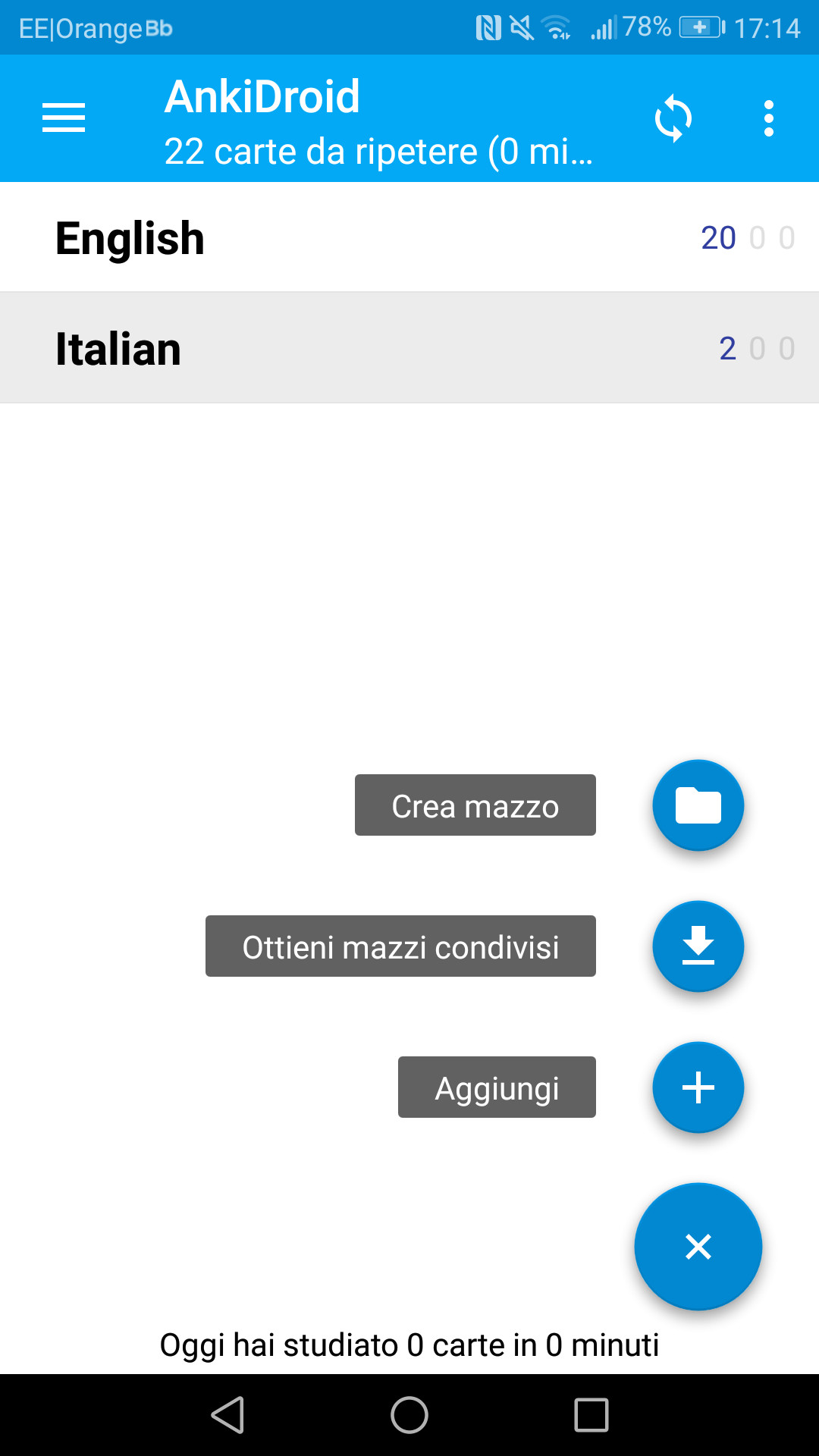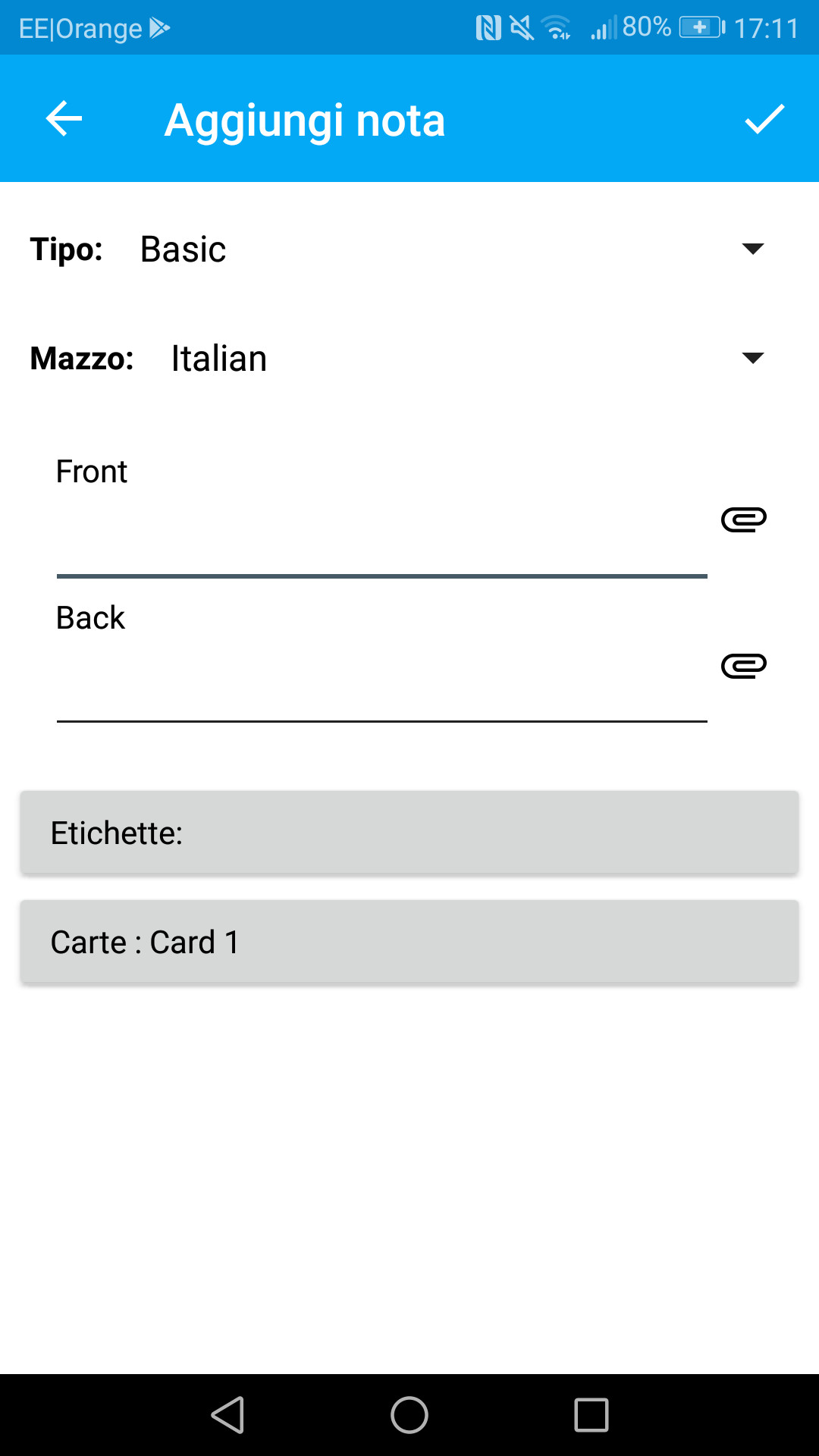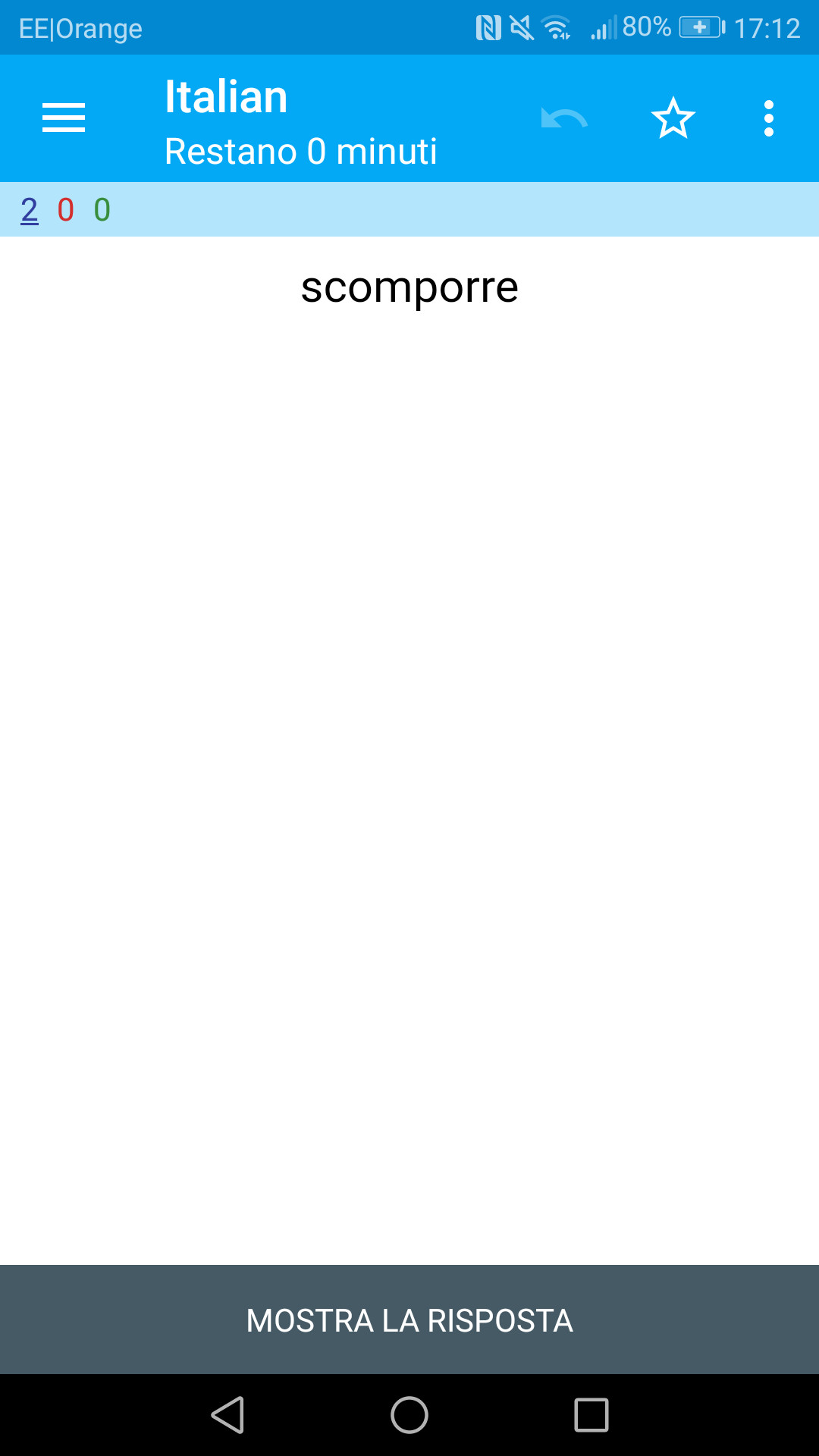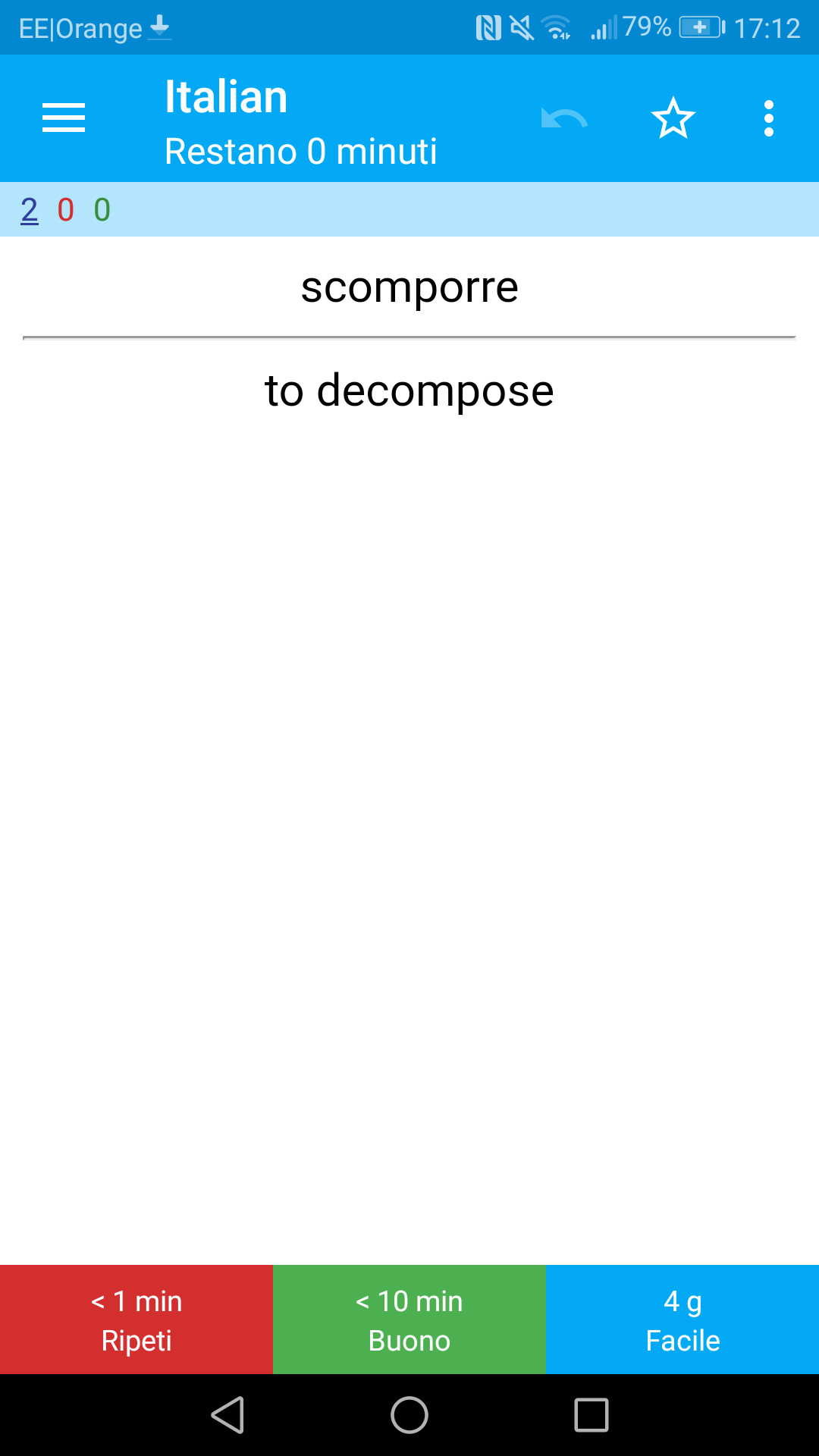AnkiDroid: What it is, and why you should download it for your Erasmus.
What is AnkiDroid?
Ibra, a guy who speaks about 5 languages (including Polish), recommended me this application called AnkiDroid.
When you're on your Erasmus, or wherever abroad, you're always coming into contact with new words with different meanings and different levels of difficulty. Of course, your mission is to remember those words for the next time you need to use them, but this is far easier said than done. Ibra told me that that's exactly what this app is for, so I didn't hesitate in downloading it.
In a nutshell, AnkiDroid is an app that will help you keep a digital log of new words in your vocabulary. The app will only remind you of those words at the point when it estimates you may have forgotten them. Don't worry, I'll explain it further.
How do you use AnkiDroid?
Step 1. You come across a new word and you find out its meaning. For example, the word 'scomporre'. What does that mean? You find out it means 'to decompose'. Now, if you had no specific structure to your study methods, you'd try to log that word in your brain as well as you can in just a few seconds. It might be that you get lucky and manage to remember it well, or the word might not leave enough of an impression for you to remember.
Anyway, in our case we go to the AnkiDroid app, we tap 'add', and then we add that new word into our vocab. In that, the app works as a sort of linguistic storage bank in the palm of your hand, and most importantly, in your own memory.


In my case, I have my whole phone in Italian as well as the app. This means that you're in contact with new words whenever you're using your phone - and, if you've been growing up in the 21st Century, that's a lot of time.
Once you add the word, it'll go into a deck. You can make decks (linguistic storages) for anything you can think of, it's entirely up to you. I'm a native Spanish speaker, and I have two decks - one for English and one for Italian. But you can divide the languages up into categories like phrasal verbs, food vocab, economics vocab... whatever you want. This is your own linguistic word bank, you can set it up however you like.


Step 2. Practise whenever and however you like. You don't need to be connected to the internet, so that means you can use while you're on the bus to university, while waiting for a friend at a bar, or in any free time you have.
Step 3. Mark yourself. Don't have a clue what a word means? Mark it red. Might know the meaning but didn't quite get it? Mark it grey. Guessed the word after a bit of effort? Tap green. Fed up of seeing the word again and again because it's easy and you know it? Mark it blue.
Step 4. Practise it again. The app's programming does all the calculations for you, so you just need to think about the first three steps. What does the programming do? Well, as you practise vocab, it makes calculations to make certain words appear again when necessary. For example, if you're always marking a word blue, then it won't appear again for another month. However, if you mark a word red, another green and another grey, the app will bring the words up again according to its own calculations. Every five days, every two weeks... I don't know exactly what sort of algorithm it uses to calculate that, but it all works so that you end up learning the word in time.
Simply put, it's as if you're putting different things in the storage room in your house. If you don't use certain things, they end up at the back of the storage room. However, if you keep needing certain things, then they'll always be within easy reach every day.
Ebbinghaus' Forgetting Curve
Ebbinghaus noted that there is something which makes us forget more than anything else: TIME. That's very true, because as time passes and we don't continue training our memory, we forget things.
Why? Well, I could bore you all day with complex theories about human memory, but I'll just give you some little snippets of the ideas in this blog. What's most important here, though, is to know what AnkiDroid really trains.
AnkiDroid trains something that's crucial for learning: the way you forget. This app studies how you remember words and how many words you remember after adding them to your vocab. You might be able to learn and remember the word 'ciao' (which means hello) in 10 seconds and then never forget it. In that case, the app will remind you of the word every two months, for example. However, it might be that the word 'sviluppo' (which means development) takes a lot more time to learn. Don't worry though, because AnkiDroid knows that learning is all about consistency, and it works specially to embed any word in your memory as deeply as possible.
It's simple: repetition, mistakes, consistency, and that's all you need. If you don't know a word, you'll repeat it again and again. But remember, if you think you know a word well and when it appears in your deck again after a month and you've forgotten it, it'll start appearing on a daily basis again. It's simple, but very efficient.
My experience.
If you're looking for a rating for this app out of 10, then I'd give it a big, great 11. AnkiDroid has been one of my closest friends during my Erasmus - you can't imagine how many times it's come in handy for me.
I normally practice words when I'm on my own on public transport. Milan is an enormous city and I live on the other side of town from classes, so the time commuting isn't worth wasting. So, if your mission is to learn a new language, then I present to you your new friend AnkiDroid.
At the moment I'm thinking of adding a new category called 'Phrasal Verbs'. For me personally, that's the area where I struggle most, so I plan to look on the internet every day and find 10 phrasal verbs to add to the deck. This should hopefully expand my memory storage, making me a bona fide language expert. Either way, I hope that you take advantage of this app just as I aim to. And don't forget to have fun while learning a language, it's the key to progressing and not giving up.
A hello to you too Ibra, I'll see you soon, man.
Photo gallery
Content available in other languages
Want to have your own Erasmus blog?
If you are experiencing living abroad, you're an avid traveller or want to promote the city where you live... create your own blog and share your adventures!
I want to create my Erasmus blog! →




















Comments (0 comments)